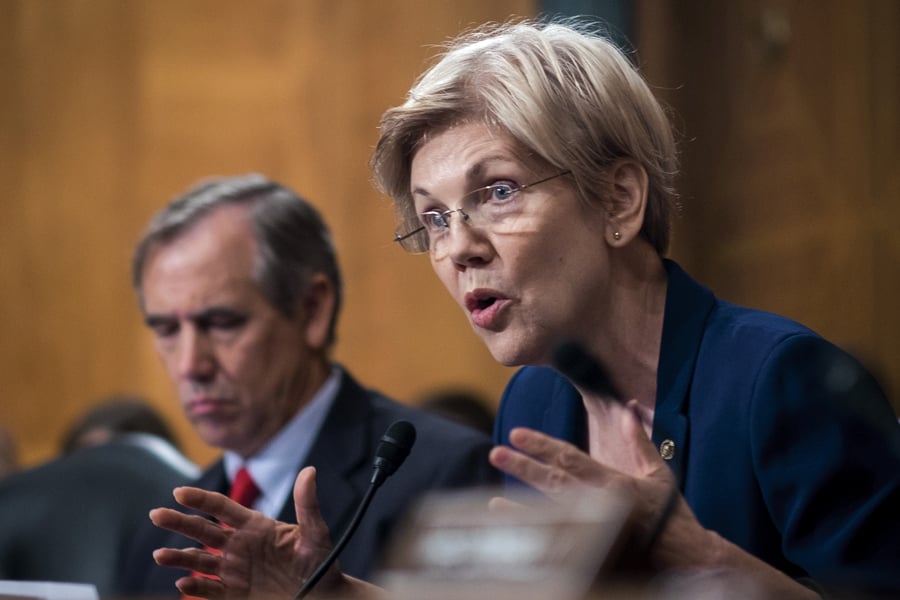

Sen. Elizabeth Warren, joined by Reps. Pramila Jayapal and Brendan Boyle, proposed a new wealth tax on households with a net worth of more than $50 million.
The lawmakers said Monday the new tax, dubbed the Ultra-Millionaire Tax Act, would create a “fairer” economy with a 2% annual tax on households and trusts valued at between $50 million and $1 billion. All net worth over $1 billion would be taxed at 3%.
The group claims the proposal would generate “at least $3 trillion in revenue over 10 years,” citing a Feb. 24 analysis from economists Emmanuel Saez and Gabriel Zucman from the University of California-Berkeley.
“The ultra-rich and powerful have rigged the rules in their favor so much that the top 0.1% pay a lower effective tax rate than the bottom 99%, and billionaire wealth is 40% higher than before the COVID crisis began,” Warren said in a statement. “A wealth tax is popular among voters on both sides for good reason: because they understand the system is rigged to benefit the wealthy and large corporations.”
A wealth tax would be difficult to pass in the current Senate, which is evenly divided between Democrats and Republicans. Democrats control the agenda, since Vice President Kamala Harris can break ties, but most bills require support from 60 senators to advance.
And Democrats have been unable to muster even 50 votes for some administration proposals, including a $15 hourly minimum wage. A wealth tax likely would be even more divisive.
However, Democrats are planning to use special budget reconciliation procedures to pass a bill with a simple majority later in the year that will include parts of a massive infrastructure package. At that point, taxes to pay for the build-out would be on the table. And under Senate rules, tax increases generally are allowed in budget bills.
The bill’s co-sponsors include Budget Chairman Bernie Sanders of Vermont, Sheldon Whitehouse of Rhode Island, Jeff Merkley of Oregon, Kirsten Gillibrand of New York, Brian Schatz of Hawaii, Ed Markey of Massachusetts and Mazie Hirono, also of Hawaii.
Jayapal is from Washington State, and Boyle is from Pennsylvania.

Relationships are key to our business but advisors are often slow to engage in specific activities designed to foster them.

Whichever path you go down, act now while you're still in control.

Pro-bitcoin professionals, however, say the cryptocurrency has ushered in change.

“LPL has evolved significantly over the last decade and still wants to scale up,” says one industry executive.

Survey findings from the Nationwide Retirement Institute offers pearls of planning wisdom from 60- to 65-year-olds, as well as insights into concerns.
Streamline your outreach with Aidentified's AI-driven solutions
This season’s market volatility: Positioning for rate relief, income growth and the AI rebound
